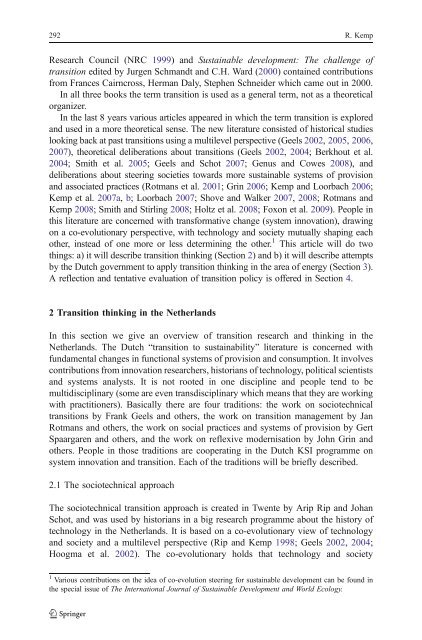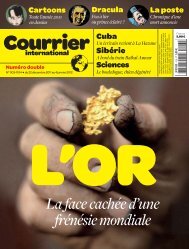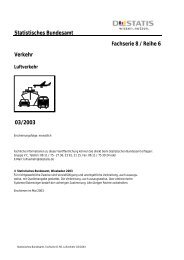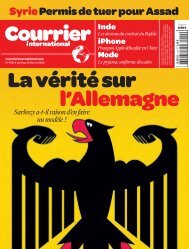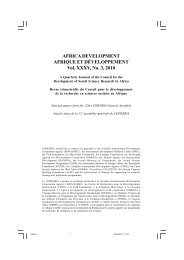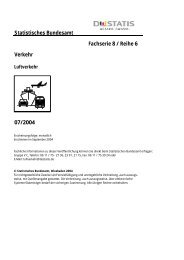The international economics of resources and resource ... - Index of
The international economics of resources and resource ... - Index of
The international economics of resources and resource ... - Index of
You also want an ePaper? Increase the reach of your titles
YUMPU automatically turns print PDFs into web optimized ePapers that Google loves.
292 R. Kemp<br />
Research Council (NRC 1999) <strong>and</strong> Sustainable development: <strong>The</strong> challenge <strong>of</strong><br />
transition edited by Jurgen Schm<strong>and</strong>t <strong>and</strong> C.H. Ward (2000) contained contributions<br />
from Frances Cairncross, Herman Daly, Stephen Schneider which came out in 2000.<br />
In all three books the term transition is used as a general term, not as a theoretical<br />
organizer.<br />
In the last 8 years various articles appeared in which the term transition is explored<br />
<strong>and</strong> used in a more theoretical sense. <strong>The</strong> new literature consisted <strong>of</strong> historical studies<br />
looking back at past transitions using a multilevel perspective (Geels 2002, 2005, 2006,<br />
2007), theoretical deliberations about transitions (Geels 2002, 2004; Berkhout et al.<br />
2004; Smith et al. 2005; Geels <strong>and</strong> Schot 2007; Genus <strong>and</strong> Cowes 2008), <strong>and</strong><br />
deliberations about steering societies towards more sustainable systems <strong>of</strong> provision<br />
<strong>and</strong> associated practices (Rotmans et al. 2001; Grin2006; Kemp <strong>and</strong> Loorbach 2006;<br />
Kemp et al. 2007a, b; Loorbach 2007; Shove <strong>and</strong> Walker 2007, 2008; Rotmans <strong>and</strong><br />
Kemp 2008; Smith <strong>and</strong> Stirling 2008; Holtz et al. 2008; Foxon et al. 2009). People in<br />
this literature are concerned with transformative change (system innovation), drawing<br />
on a co-evolutionary perspective, with technology <strong>and</strong> society mutually shaping each<br />
other, instead <strong>of</strong> one more or less determining the other. 1 This article will do two<br />
things: a) it will describe transition thinking (Section 2) <strong>and</strong> b) it will describe attempts<br />
by the Dutch government to apply transition thinking in the area <strong>of</strong> energy (Section 3).<br />
A reflection <strong>and</strong> tentative evaluation <strong>of</strong> transition policy is <strong>of</strong>fered in Section 4.<br />
2 Transition thinking in the Netherl<strong>and</strong>s<br />
In this section we give an overview <strong>of</strong> transition research <strong>and</strong> thinking in the<br />
Netherl<strong>and</strong>s. <strong>The</strong> Dutch “transition to sustainability” literature is concerned with<br />
fundamental changes in functional systems <strong>of</strong> provision <strong>and</strong> consumption. It involves<br />
contributions from innovation researchers, historians <strong>of</strong> technology, political scientists<br />
<strong>and</strong> systems analysts. It is not rooted in one discipline <strong>and</strong> people tend to be<br />
multidisciplinary (some are even transdisciplinary which means that they are working<br />
with practitioners). Basically there are four traditions: the work on sociotechnical<br />
transitions by Frank Geels <strong>and</strong> others, the work on transition management by Jan<br />
Rotmans <strong>and</strong> others, the work on social practices <strong>and</strong> systems <strong>of</strong> provision by Gert<br />
Spaargaren <strong>and</strong> others, <strong>and</strong> the work on reflexive modernisation by John Grin <strong>and</strong><br />
others. People in those traditions are cooperating in the Dutch KSI programme on<br />
system innovation <strong>and</strong> transition. Each <strong>of</strong> the traditions will be briefly described.<br />
2.1 <strong>The</strong> sociotechnical approach<br />
<strong>The</strong> sociotechnical transition approach is created in Twente by Arip Rip <strong>and</strong> Johan<br />
Schot, <strong>and</strong> was used by historians in a big research programme about the history <strong>of</strong><br />
technology in the Netherl<strong>and</strong>s. It is based on a co-evolutionary view <strong>of</strong> technology<br />
<strong>and</strong> society <strong>and</strong> a multilevel perspective (Rip <strong>and</strong> Kemp 1998; Geels 2002, 2004;<br />
Hoogma et al. 2002). <strong>The</strong> co-evolutionary holds that technology <strong>and</strong> society<br />
1 Various contributions on the idea <strong>of</strong> co-evolution steering for sustainable development can be found in<br />
the special issue <strong>of</strong> <strong>The</strong> International Journal <strong>of</strong> Sustainable Development <strong>and</strong> World Ecology.


